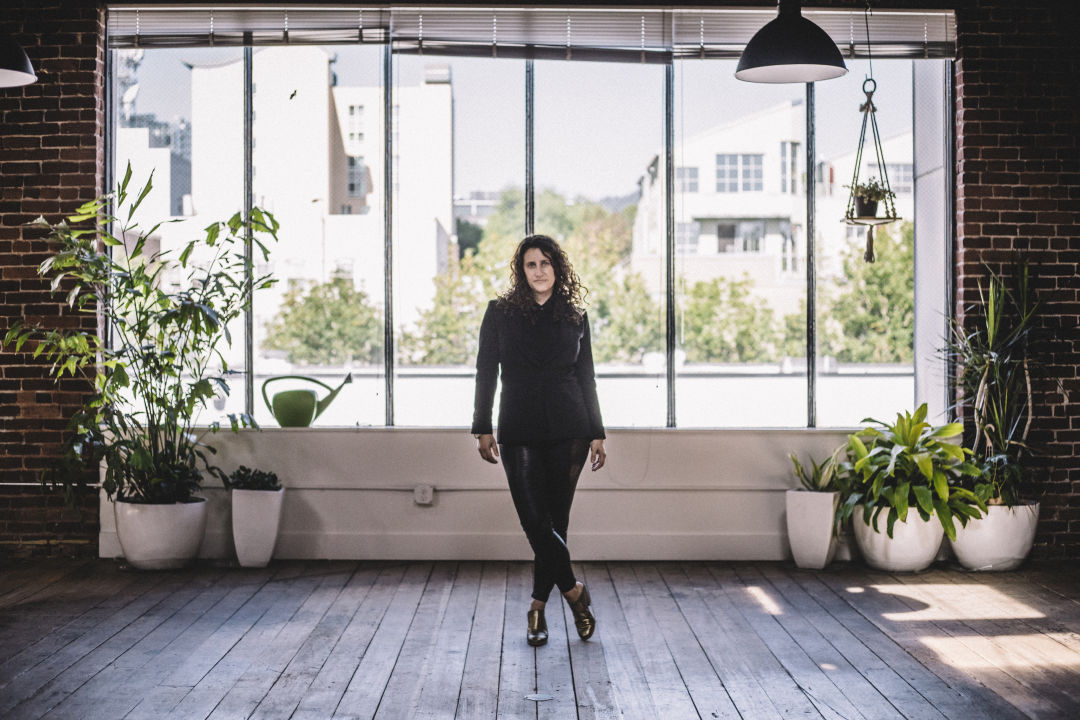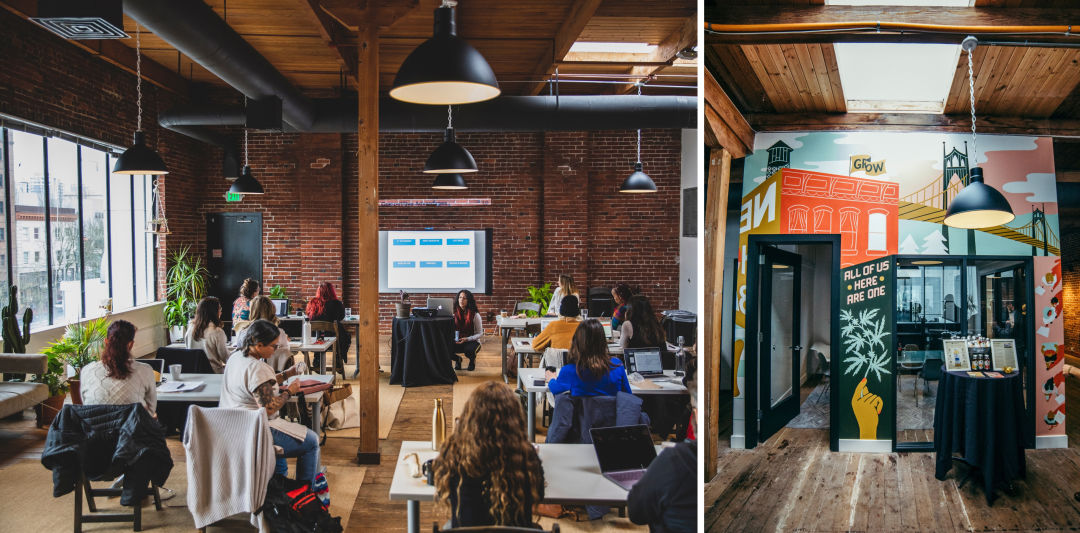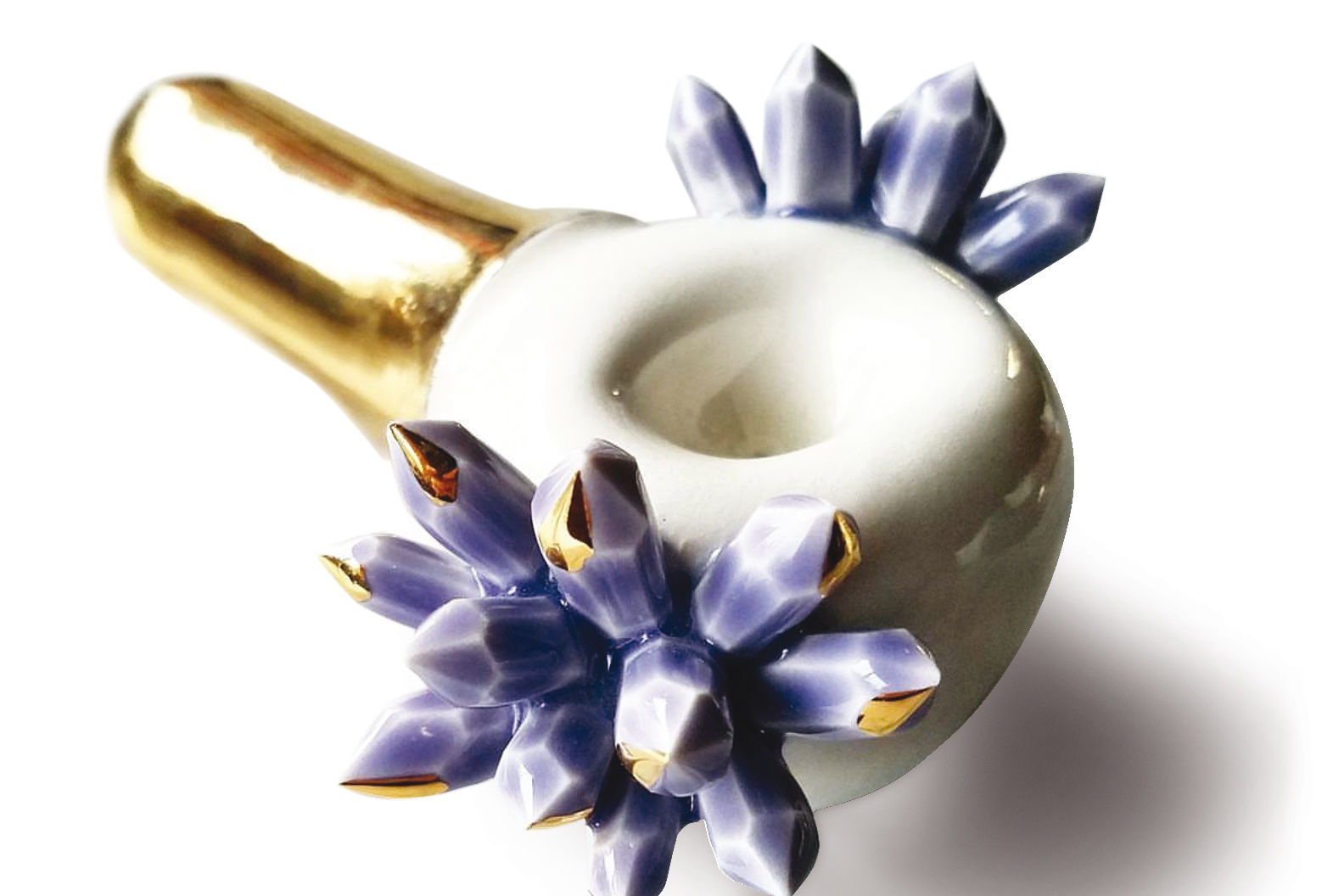
A New Accelerator Pushes for Gender Parity in the Cannabis Industry
In the past few years, as states across the country have rolled out recreational weed, a rosy narrative has surfaced: that cannabis could be an industry without a glass ceiling. “Legal marijuana could be the first billion-dollar industry not dominated by men,” blared a 2015 Newsweek cover. “It seems fitting that a plant called Mary Jane could smash the patriarchy,” read the story’s first line. The message: Get in here, ladies. The green rush is yours for the taking.
Except ... not so fast. Yes, the cannabis industry—just like every other industry—counts some incredible women in its ranks. But when it comes to those in top positions, things look less auspicious. According to a 2017 survey by Marijuana Business Daily, about 27 percent of executives in the cannabis industry are women (down from 36 percent in 2015). That’s just five points better than the national average across industries.
“Since we started to see this shift into a legal market, we’ve been hearing this narrative that women will be in more positions of leadership,” says Amy Margolis, a longtime Portland cannabis lawyer. “That did not actually happen. That was aspirational. It didn’t matter how many times we said it out loud, it did not manifest itself.”

Amy Margolis at the Commune
Image: Courtesy Sam Gehrke
So Margolis—who also founded the Oregon Cannabis Association, a trade group with more than 200 members, and has been influential in shaping statewide cannabis policy—launched a new venture. In January, she welcomed the first cohort of the Initiative, an accelerator for women-founded businesses in the cannabis industry. An intensive three-month program focused on preparing early-stage companies for venture-capital funding and aggressive national growth, it’s Oregon’s first cannabis business accelerator, and the nation’s first cannabis accelerator for women. (As opposed to incubators, which work with start-ups in the concept stage, accelerators target existing companies.) The Initiative is housed at a 4,000-square-foot event and work space in Old Town called the Commune—basically a cannabis-friendly (and co-ed) clubhouse.
“We were having this huge rush of institutional and traditional capital, which is, like, all men,” says Margolis, a dogged, charismatic 42-year-old with a dark mane of curls. “It seemed to me in late 2017 that if we didn’t do something tangible, [cannabis] was going to look like tech, and women were going to be pushed out completely.”

Amy Risch (left) and Susan Bishop of Hana Medicinals
Image: Courtesy Sam Gehrke
The first cohort comprises nine businesses, drawn from more than 70 applications from across the country. They include edibles manufacturer Leif Goods, known for their line of “Junk” treats (like Dynamites exploding candy); Ma’at Botanicals, which makes hemp-infused teas and beauty products; and Hana Medicinals, a topicals maker now expanding to fizzy drink mixes. Hana founder Amy Risch, a chemical engineer by training, started experimenting with topicals to treat her arthritis. When she first signed on with a commercial kitchen, she booked the only available slot: 2 a.m. “We’ve been bootstrapping,” Risch says. “I met people who had processing businesses. I went online. I figured it out—that’s the way I operate.”
On Friday, May 10, the entrepreneurs will take part in a demo day, a chance to pitch potential investors. (Free and open to the public, the day features lunch, a discussion panel, and pitches from each of the companies.) For Margolis, the success of this first group is crucial—proof that women are not just fundable but capable of commanding major national companies. And she’s already got her eye on expansion: She might run a second cohort in Portland this fall and plans to bring the program to California by year’s end. (She’s received offers of space in San Francisco and Los Angeles, she says.) She’s had interest from New Jersey, New York, Michigan, and British Columbia, too. “We’re going to take the lessons from this one,” Margolis says, “and see how quickly we can get them everywhere.”
On a Wednesday in January, the cohort is gathered at the Commune, an airy space with exposed brick, skylights, and a well-curated selection of potted plants. And no, nobody is hotboxing a conference room while nodding along to Afroman, or whatever you imagine goes down at a cannabis accelerator. The actual scene: venture-capital boot camp. Emily Paxhia and Tahira Rehmatullah—two bigshot out-of-town cannabis investors—run through investment mechanisms and debt structures. Initiative participants lob questions about social responsibility and negotiating equity. There’s frank discussion of the venture-capital gender gap: In 2017, female CEOs got only 2 percent of VC funding. In the face of this, Paxhia is no-nonsense: “You should feel bad for someone who’s not investing in your business.”

FROM LEFT: The first Initiative cohort at the Commune; a mural in the Old Town space
Image: Courtesy Sam Gehrke
It’s part pep talk, part real talk. “Walking in felt like rainbows,” says Valarie Šakota, who, with Meryl Montgomery, cofounded Barbari, which makes smokable herbal blends. “But we knew that it was going to be an uphill battle. They’re reinforcing that in a good way, making sure our skin is tough enough.”
Building backbone is vital for Portlander Robin Jones, a self-described “start-up generalist”—she’s held top positions at seven fledgling companies—who’s facilitating the accelerator with Margolis. “Generally speaking, men come into the room with much more hubris,” Jones says. “For me, it’s more about equipping [women] with what they need to feel really confident than it is about basic business fundamentals.” (She’s also a fan of Margolis: “She’s just phenomenal. A force.”)
Most of the participating businesses are in consumer-packaged goods (as opposed to, say, software or consulting), because Margolis sees room for faster national growth in that realm. Consider this: The legal cannabis market in the US is projected to reach more than $23 billion by 2022.
“Nobody’s really owned the edible/topical product space in the way you have big dispensary chains or big growers. There’s absolutely no reason a woman should not come out as a consumer-packaged-goods unicorn,” Margolis says, using a term that refers to a company valued at $1 billion or more. “That would be amazing.”







